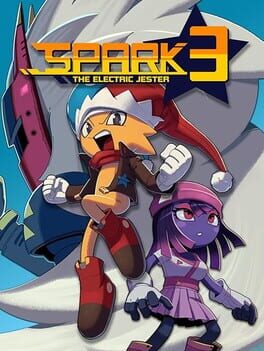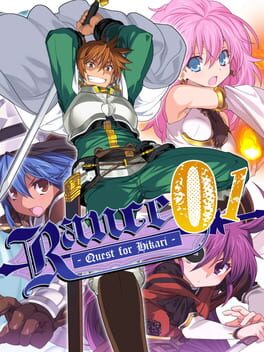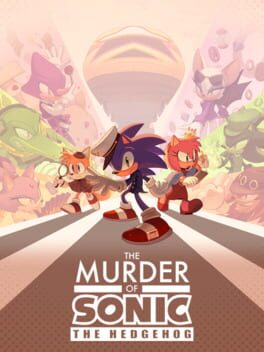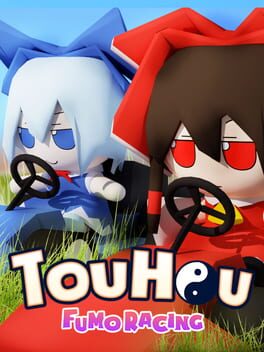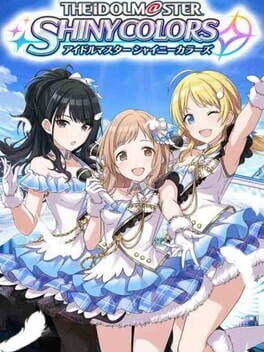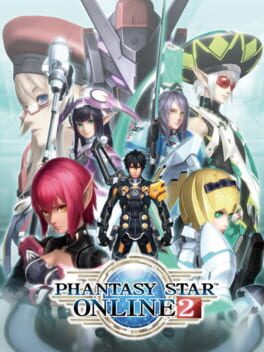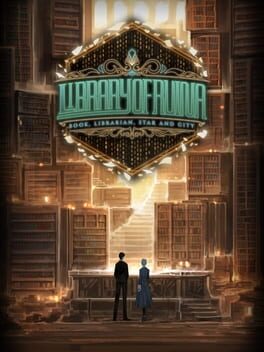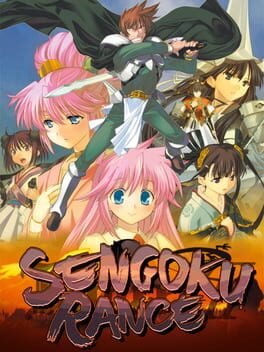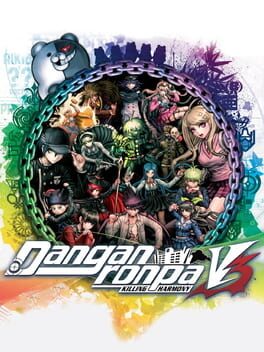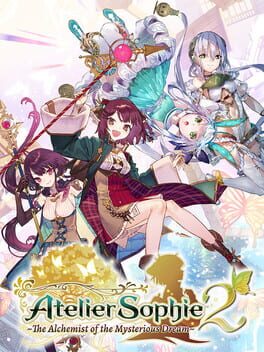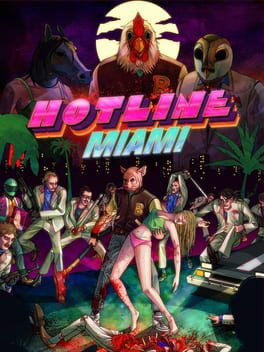100 Reviews liked by Amir
IF YOU ARE NOT A FAN OF THE WORDS
-PEAK FICTION
-GOAT
-RAW
-FIRE
DO NOT PLAY THIS GAME BECAUSE THAT'S EXACTLY WHAT YOU'LL GET
While the first 2 games were average as fuck and full of issues from pacing to badly coded physics and dull combat, this game improves on literally every aspect established by Spark 2 and super-charged it to eleven.
The levels are what I would consider peak SA2 like levels mixing elements of momentum coupled with moderate boost and vastly open area with little to no walls to hold you from just going batshit insane on platforming at high speed while exploring the levels for hidden secrets and shortcuts.
Most the games have lots of variety both in their mechanics and environnement making so not a single moment of this game feels dull (except of a few places like the space level but that was the only low point for me)
The combat has been significantly improved and is now actually fun to mess-around in, I still think it's kind of "too much" and not as fun as just zooming through levels without a care in the world but heh, if they're really adamant on making this a core aspect of the franchise then so be it.
And on top of that they finally figured out how the physics should work and no moments were ruined by the physics doing bullshit, everything work as intended.
This game is to Sonic Adventure fan what Sonic Mania was 2D Sonic, a game which perfected a formula and made it more than the sum of its parts by getting rid of the awkward stuff and focusing on the right one.
The soundtrack is also pure cum in music form and the plot while not super present this time around goes places I never expected to during the final chapter and it's probably the most batshit insane plot I've seen in a platformer since Klonoa 2 or Mega Man Zero maybe
All in all, this is a game I absolutely recommend for those looking for a fun high speed action game with tons of additional challenges for completionist on top (and as a bonus, all the levels from Spark 2 have been recreated and made really good thanks to tweak in the physic)
A generous game, made by passionate people who aimed for greatness and achieved it flawlessly
-PEAK FICTION
-GOAT
-RAW
-FIRE
DO NOT PLAY THIS GAME BECAUSE THAT'S EXACTLY WHAT YOU'LL GET
While the first 2 games were average as fuck and full of issues from pacing to badly coded physics and dull combat, this game improves on literally every aspect established by Spark 2 and super-charged it to eleven.
The levels are what I would consider peak SA2 like levels mixing elements of momentum coupled with moderate boost and vastly open area with little to no walls to hold you from just going batshit insane on platforming at high speed while exploring the levels for hidden secrets and shortcuts.
Most the games have lots of variety both in their mechanics and environnement making so not a single moment of this game feels dull (except of a few places like the space level but that was the only low point for me)
The combat has been significantly improved and is now actually fun to mess-around in, I still think it's kind of "too much" and not as fun as just zooming through levels without a care in the world but heh, if they're really adamant on making this a core aspect of the franchise then so be it.
And on top of that they finally figured out how the physics should work and no moments were ruined by the physics doing bullshit, everything work as intended.
This game is to Sonic Adventure fan what Sonic Mania was 2D Sonic, a game which perfected a formula and made it more than the sum of its parts by getting rid of the awkward stuff and focusing on the right one.
The soundtrack is also pure cum in music form and the plot while not super present this time around goes places I never expected to during the final chapter and it's probably the most batshit insane plot I've seen in a platformer since Klonoa 2 or Mega Man Zero maybe
All in all, this is a game I absolutely recommend for those looking for a fun high speed action game with tons of additional challenges for completionist on top (and as a bonus, all the levels from Spark 2 have been recreated and made really good thanks to tweak in the physic)
A generous game, made by passionate people who aimed for greatness and achieved it flawlessly
Hollow Knight
2017
Touhou Fumo Racing
2022
This review contains spoilers
In spite of its design flaws, Nier Replicant offers a brilliantly executed narrative experience by devoting itself entirely to what it seeks to accomplish.
Our time with the game is dedicated to showing us that our meaning in the world derives from our connection to one another. Even if humanity is to perish, preserving that meaning is what we live for. This idea is established within the opening hour through Nier's monologue, claiming that, despite the world dying, his only goal is to ensure that he and his sister survive. What becomes of humanity is nothing more than a distraction to that objective. Replicant builds on this through the structure of its storytelling, subverting the archetypal hero's journey in favor of a more intimate goal. Emphasis is placed on this concept by utilizing perspective as a tool. We initially perceive events through a lens that portrays Nier and his companions as the heroes fighting against an unequivocally evil threat, Shades. Toward the end of our first playthrough, a twist reveals that the beings we've been mercilessly slaughtering are actually humans that currently exist in the form of 'Gestalts' and that we, 'Replicants', were conceived as nothing more than shells for them to survive in. With that knowledge in mind, the second playthrough builds on this by forcing us to revisit the same scenarios with newly added scenes that show us the Gestalts perspective, humanizing what was seemingly evil through familiar acts and motivations. This functions to recontextualize how we view our actions in this world and what changes once we're made aware of the harm we've brought to humanity.
Ultimately, none of this has an impact on how Nier proceeds toward his goal. The final battle with Shadowlord continues to drive this point when he is revealed to be the human version of Nier that we witnessed in the prologue, sharing the same goal of saving their respective versions of Yonah. Ignoring these parallels, Nier's response to this information remains abrasive. "You want me to understand your sadness? You think I'm gonna sympathize with you?" His only promise was to protect my sister, cutting down anyone that gets in the way of that. If there is a difference between Nier's goal at the beginning and ending of his journey, its the addition of people he holds dear in this world and resoleves himself to protect even if the circumstances involve existence itself. In defeating Shadowlord, an end was put to Project Gestalt, which effectively dooms humanity to an inevitable extinction. The consequences of this can be seen in another Yoko Taro works, further emphasizing what is being sacrificed for Nier's goal.
A knot is tied onto these themes through its implementation of metanarrative. Ending D, what was considered the true ending for 11 years, closes the game with Nier's sacrifice of his own existence to save Kainé's life, one of the people he swore to protect. The impact of this sacrifice is conveyed through the erasure of our save data, associating the player's personal experience to depict this. Exclusive to ver.1.22474487139... is Ending E, featuring a continuation of this ending where Kainé fights to undo what was lost through D, which restores our previously deleted save file. While this may seem to undo what was originally bold about the previous ending, it functions to provide a more thematically cohesive statement toward what Replicant has been attempting to tell us. Kainé's struggle to restore this world is pointless in the grander scheme as nothing will be fixed. Gestalt Nier and Yonah's deaths still lead to humanity's extinction and Replicants are no less of an errored existence than they were prior. Similarly, restoring our save file does not serve much purpose as our time with the game is still reaching its end without any change in the events that will follow. Instead, what Kainé's actions accomplish is bringing back the world where she experienced acceptance and learned the value of connecting with others. The game closes its narrative with one final scene that Kainé and Emil communicate to us as Nier's existence is returned to their world.
"Our journey may have been meaningless. Our past may have been a mistake. But... we're not going back. Even if this world... comes to an end. Because this... this is the world with the people we cherish."
The conceptual execution of Replicant's message is strengthened by extending itself onto other areas of the game's design, providing consistency that goes beyond the narrative itself. It shouldn't take long to notice that letters are strangely prominent throughout our experience. Symbolic of the themes surrounding human connection and intimacy, is is often depicted through various elements of its visual presentation, such as mailboxes serving as save points or the menu's UI being styled as a postcard. The loading screen comprises of letters written by Yonah, frequently reminding the player what they are fighting for. Several quests either feature or are centered around letters. One in particular plays into this concept by bringing us to an old lady whose happiness derives from receiving letters from her lover. Unbenounced to her is that this man is no longer alive and the person writing her has been the postman delivering the letters as a means of preserving that happiness. Offering consistency in this regard is a showing of how much thought goes into the themes.
Of course, this isn't the only aspect of its presentation that functions to provide a more effective experience. Accompanying all of this is the sound of Replicant, a facet of the game that is integral to the holistic execution of Taro's vision. From the haunting vocals opening the game in 'Snow in Summer' to the to the melancholic tone of 'Grandma', Replicant's ethereal atmosphere serves as one of the biggest contributors to its identity. Common collaborator Keiichi Okabe and his studio, Monaca, compose the OST with assistance in the form of Emi Evans's voice. Okabe's compositions allow for a distinct harmony to exist with her vocals, blending them into tracks as another layer to the production. This is partially accomplished through the utilization of Evans' Chaos language, which is made up of sounds that derive from 6 different languages, making the lyrics incomprehensible without being jarring. According to Taro, he wanted to avoid using recognizable lyrics to prevent distracting the player, serving more appropriately as background music. Track placement is also given emphasis to enhance immersion throughout the playthrough. Certain sections of the game splits tracks into multiple layers, introducing a new layer as the player continues to click through the dialogue. This is a technique that is utilized to synchronize a track's placement with what is being shown on screen more accurately without stripping away the player's agency.
This isn't to say that the game is flawless. It continues to function off one of Taro's most infamous quirks in forcing redundancy on the player in order to experience all of the content. At least three playthroughs of the game's second half are required for this, the third barely adding anything prior to reaching Endings C and D, which may result in a fourth playthrough if the player neglects to save before the final area. As the most criticized aspect of the experience, its reasonable to understand why several people may not come off Replicant with a positive impression. However, those who can tolerate these inconveniences will find themselves experiencing one of the most carefully crafted experiences the medium has to offer.
Our time with the game is dedicated to showing us that our meaning in the world derives from our connection to one another. Even if humanity is to perish, preserving that meaning is what we live for. This idea is established within the opening hour through Nier's monologue, claiming that, despite the world dying, his only goal is to ensure that he and his sister survive. What becomes of humanity is nothing more than a distraction to that objective. Replicant builds on this through the structure of its storytelling, subverting the archetypal hero's journey in favor of a more intimate goal. Emphasis is placed on this concept by utilizing perspective as a tool. We initially perceive events through a lens that portrays Nier and his companions as the heroes fighting against an unequivocally evil threat, Shades. Toward the end of our first playthrough, a twist reveals that the beings we've been mercilessly slaughtering are actually humans that currently exist in the form of 'Gestalts' and that we, 'Replicants', were conceived as nothing more than shells for them to survive in. With that knowledge in mind, the second playthrough builds on this by forcing us to revisit the same scenarios with newly added scenes that show us the Gestalts perspective, humanizing what was seemingly evil through familiar acts and motivations. This functions to recontextualize how we view our actions in this world and what changes once we're made aware of the harm we've brought to humanity.
Ultimately, none of this has an impact on how Nier proceeds toward his goal. The final battle with Shadowlord continues to drive this point when he is revealed to be the human version of Nier that we witnessed in the prologue, sharing the same goal of saving their respective versions of Yonah. Ignoring these parallels, Nier's response to this information remains abrasive. "You want me to understand your sadness? You think I'm gonna sympathize with you?" His only promise was to protect my sister, cutting down anyone that gets in the way of that. If there is a difference between Nier's goal at the beginning and ending of his journey, its the addition of people he holds dear in this world and resoleves himself to protect even if the circumstances involve existence itself. In defeating Shadowlord, an end was put to Project Gestalt, which effectively dooms humanity to an inevitable extinction. The consequences of this can be seen in another Yoko Taro works, further emphasizing what is being sacrificed for Nier's goal.
A knot is tied onto these themes through its implementation of metanarrative. Ending D, what was considered the true ending for 11 years, closes the game with Nier's sacrifice of his own existence to save Kainé's life, one of the people he swore to protect. The impact of this sacrifice is conveyed through the erasure of our save data, associating the player's personal experience to depict this. Exclusive to ver.1.22474487139... is Ending E, featuring a continuation of this ending where Kainé fights to undo what was lost through D, which restores our previously deleted save file. While this may seem to undo what was originally bold about the previous ending, it functions to provide a more thematically cohesive statement toward what Replicant has been attempting to tell us. Kainé's struggle to restore this world is pointless in the grander scheme as nothing will be fixed. Gestalt Nier and Yonah's deaths still lead to humanity's extinction and Replicants are no less of an errored existence than they were prior. Similarly, restoring our save file does not serve much purpose as our time with the game is still reaching its end without any change in the events that will follow. Instead, what Kainé's actions accomplish is bringing back the world where she experienced acceptance and learned the value of connecting with others. The game closes its narrative with one final scene that Kainé and Emil communicate to us as Nier's existence is returned to their world.
"Our journey may have been meaningless. Our past may have been a mistake. But... we're not going back. Even if this world... comes to an end. Because this... this is the world with the people we cherish."
The conceptual execution of Replicant's message is strengthened by extending itself onto other areas of the game's design, providing consistency that goes beyond the narrative itself. It shouldn't take long to notice that letters are strangely prominent throughout our experience. Symbolic of the themes surrounding human connection and intimacy, is is often depicted through various elements of its visual presentation, such as mailboxes serving as save points or the menu's UI being styled as a postcard. The loading screen comprises of letters written by Yonah, frequently reminding the player what they are fighting for. Several quests either feature or are centered around letters. One in particular plays into this concept by bringing us to an old lady whose happiness derives from receiving letters from her lover. Unbenounced to her is that this man is no longer alive and the person writing her has been the postman delivering the letters as a means of preserving that happiness. Offering consistency in this regard is a showing of how much thought goes into the themes.
Of course, this isn't the only aspect of its presentation that functions to provide a more effective experience. Accompanying all of this is the sound of Replicant, a facet of the game that is integral to the holistic execution of Taro's vision. From the haunting vocals opening the game in 'Snow in Summer' to the to the melancholic tone of 'Grandma', Replicant's ethereal atmosphere serves as one of the biggest contributors to its identity. Common collaborator Keiichi Okabe and his studio, Monaca, compose the OST with assistance in the form of Emi Evans's voice. Okabe's compositions allow for a distinct harmony to exist with her vocals, blending them into tracks as another layer to the production. This is partially accomplished through the utilization of Evans' Chaos language, which is made up of sounds that derive from 6 different languages, making the lyrics incomprehensible without being jarring. According to Taro, he wanted to avoid using recognizable lyrics to prevent distracting the player, serving more appropriately as background music. Track placement is also given emphasis to enhance immersion throughout the playthrough. Certain sections of the game splits tracks into multiple layers, introducing a new layer as the player continues to click through the dialogue. This is a technique that is utilized to synchronize a track's placement with what is being shown on screen more accurately without stripping away the player's agency.
This isn't to say that the game is flawless. It continues to function off one of Taro's most infamous quirks in forcing redundancy on the player in order to experience all of the content. At least three playthroughs of the game's second half are required for this, the third barely adding anything prior to reaching Endings C and D, which may result in a fourth playthrough if the player neglects to save before the final area. As the most criticized aspect of the experience, its reasonable to understand why several people may not come off Replicant with a positive impression. However, those who can tolerate these inconveniences will find themselves experiencing one of the most carefully crafted experiences the medium has to offer.
A perfect example of what makes an amazing MMORPG : Great class diversity, an absolute addicting, satisfying and dynamic gameplay with a lot of depth, an enormous amount of content and variety on all sides of it as well as an absolute banger OST.
My only complaints generally were about menus, what exactly to do in what order and the enhancement system that were not intuitive at all but you eventually get the gist of it.
Also, the main story was just your random shounen nekketsu story but it is not what is important anyway.
Unfortunately, since the launch of Phantasy Star Online 2 : New Genesis, the devs fucked it up and made it unplayable to make the players move.
PSO2 is the best MMORPG I have ever played.
My only complaints generally were about menus, what exactly to do in what order and the enhancement system that were not intuitive at all but you eventually get the gist of it.
Also, the main story was just your random shounen nekketsu story but it is not what is important anyway.
Unfortunately, since the launch of Phantasy Star Online 2 : New Genesis, the devs fucked it up and made it unplayable to make the players move.
PSO2 is the best MMORPG I have ever played.
Persona 3 FES
2007
A lot of issues with the game imo, the first 6 months are either completely barren or every plot event just feels completely rushed and/or pointless. Everyday feels repetitive and boring, important/interesting social links are locked behind social skills which add to the slow start. Tartarus is insanely boring and a job to get thru, not fun. The last 3 months is a step up but not saying much, characters still felt rushed or didnt get the time they needed to become good. The main cast just doesnt feel developed and together bar a couple like Aigis and maybe one other
Library of Ruina
2021
Sengoku Rance
2006
This review contains spoilers
When I play JRPGs, I love to lose myself in the amazing worlds that are created & connect with the characters. There truly is no greater feeling than getting so invested in this genre & finding a game which ticks all your boxes in the best way possible.
Sophie 2 is one of those games & so much more. Words cannot do justice how I TREASURED my experience with this game. This game does so so much right & it’s the best Atelier game I’ve played for absolute definite. Like Ryza 2 was to Ryza 1, Sophie 2 takes everything that worked from the first & just improved upon it majorly. What makes Sophie 2 so fantastic is that you really don’t need to have played Sophie 1 to follow along with what’s going on. It’s very beginner friendly in its approach unlike Ryza 2 which imo you couldn’t really jump into without prior knowledge of the first game to really appreciate it. However for the best experience, I’d recommend playing Sophie 1 first.
The alchemy system in this game is amazing. It really made me think about what I was doing & like a lot of Atelier games I sometimes found myself synthesising stuff for ages as it just breezed by with how addicted I was. Knowing which materials to use & the different catalysts for different effects made it the most interesting alchemy in the series that I’ve played thus far.
The combat in Sophie 2 is absolutely fantastic. One of the best turn based systems I’ve seen in recent memory & a huge leap over Sophie 1’s battle system. Using twin attacks in battle was incredible & gave the combat a really nice flow. Each character felt important to the group & pulling off their ultimate attacks was really satisfying as you unlock them across the story.
Speaking of the story, Sophie 2’s narrative is really really solid. It’s not going to blow you away or anything but that’s just the charm of this series. While I definitely love a story that explores deep themes, sometimes something as simple as the theme of dreams is what I really need. It was really funny & light hearted as a lot of Atelier games are but also surprisingly emotional in parts though never felt like it was just throwing stuff at me for the sake of it which I saw as a problem in the latter parts of Sophie 1 after a pretty directionless but comforting adventure.
Some of the worlds in Sophie 2 were just absolutely gorgeous. A big mechanic of this game is changing the weather & just seeing how much each area changes thanks to that is really really amazing. While I definitely think some of them went on arguably a little too long, each were diverse enough to never get boring which I find a lot of dungeons in this genre often do. The difference in the look with rain, sun, snow etc helps keep things looking fresh & I appreciate that.
The characters in this game are excellent. Tropey? Yes. But I’d say they were tropes done right. And like a lot of Gust games I’ve played so far, the characters really shine. Each has their own individual story & they all stand out from one another, admittedly some more than others. Though the personal highlights for me in this game were Sophie, Rami, Plachta & Elvira.
Sophie herself is the same loveable ray of sunshine that she was in the first game & honestly I found the bond between Sophie & Ramizel incredibly wholesome. I really enjoyed just how much Rami was influenced by her granddaughter’s success & it also showed just how much Sophie’s grandmother meant to her & the way their relationship progresses throughout the game it was hard not to feel attached. I admit there were scenes that made me emotional & their interactions were far & away my favourite. I also really liked how young Plachta was written & seeing just how big the contrast is between her & doll Plachta was really interesting. As for Elvira…I was really not sure of her at first however what a character she turned out to be. Her arc was really solid & I found her writing to be incredibly impactful & I was incredibly captivated by her story. The theme of dreams runs through Elvira & seeing how she grows to care for the people of Erde Weige was an incredibly satisfying payoff in the ending. The character writing in this game is nothing short of brilliant & some of the best in the series & I’m sure that will remain as I go further into this franchise.
I could go on & on about everything this game does amazingly but we’d be here for days. All you need to know is that Atelier Sophie 2 is a masterclass of the JRPG genre & undoubtedly will remain as one of my favourite games I’ve played this entire year. It truly was so charming & even better than I ever could’ve expected.
Atelier has quickly become a favourite franchise of mine from the games I’ve played so far & while I definitely will return to the other two titles in the mysterious trilogy at a later date, I truly feel like I’ve reached the peak of this franchise…until Ryza 3 that is but we’ll see. If you enjoy JRPGs, this game should absolutely not be slept on. What an absolutely wonderful time I had.
Now Gust…WHERE IS ATELIER RAMIZEL??? Cause after this masterpiece I NEED it in my life.
Sophie 2 is one of those games & so much more. Words cannot do justice how I TREASURED my experience with this game. This game does so so much right & it’s the best Atelier game I’ve played for absolute definite. Like Ryza 2 was to Ryza 1, Sophie 2 takes everything that worked from the first & just improved upon it majorly. What makes Sophie 2 so fantastic is that you really don’t need to have played Sophie 1 to follow along with what’s going on. It’s very beginner friendly in its approach unlike Ryza 2 which imo you couldn’t really jump into without prior knowledge of the first game to really appreciate it. However for the best experience, I’d recommend playing Sophie 1 first.
The alchemy system in this game is amazing. It really made me think about what I was doing & like a lot of Atelier games I sometimes found myself synthesising stuff for ages as it just breezed by with how addicted I was. Knowing which materials to use & the different catalysts for different effects made it the most interesting alchemy in the series that I’ve played thus far.
The combat in Sophie 2 is absolutely fantastic. One of the best turn based systems I’ve seen in recent memory & a huge leap over Sophie 1’s battle system. Using twin attacks in battle was incredible & gave the combat a really nice flow. Each character felt important to the group & pulling off their ultimate attacks was really satisfying as you unlock them across the story.
Speaking of the story, Sophie 2’s narrative is really really solid. It’s not going to blow you away or anything but that’s just the charm of this series. While I definitely love a story that explores deep themes, sometimes something as simple as the theme of dreams is what I really need. It was really funny & light hearted as a lot of Atelier games are but also surprisingly emotional in parts though never felt like it was just throwing stuff at me for the sake of it which I saw as a problem in the latter parts of Sophie 1 after a pretty directionless but comforting adventure.
Some of the worlds in Sophie 2 were just absolutely gorgeous. A big mechanic of this game is changing the weather & just seeing how much each area changes thanks to that is really really amazing. While I definitely think some of them went on arguably a little too long, each were diverse enough to never get boring which I find a lot of dungeons in this genre often do. The difference in the look with rain, sun, snow etc helps keep things looking fresh & I appreciate that.
The characters in this game are excellent. Tropey? Yes. But I’d say they were tropes done right. And like a lot of Gust games I’ve played so far, the characters really shine. Each has their own individual story & they all stand out from one another, admittedly some more than others. Though the personal highlights for me in this game were Sophie, Rami, Plachta & Elvira.
Sophie herself is the same loveable ray of sunshine that she was in the first game & honestly I found the bond between Sophie & Ramizel incredibly wholesome. I really enjoyed just how much Rami was influenced by her granddaughter’s success & it also showed just how much Sophie’s grandmother meant to her & the way their relationship progresses throughout the game it was hard not to feel attached. I admit there were scenes that made me emotional & their interactions were far & away my favourite. I also really liked how young Plachta was written & seeing just how big the contrast is between her & doll Plachta was really interesting. As for Elvira…I was really not sure of her at first however what a character she turned out to be. Her arc was really solid & I found her writing to be incredibly impactful & I was incredibly captivated by her story. The theme of dreams runs through Elvira & seeing how she grows to care for the people of Erde Weige was an incredibly satisfying payoff in the ending. The character writing in this game is nothing short of brilliant & some of the best in the series & I’m sure that will remain as I go further into this franchise.
I could go on & on about everything this game does amazingly but we’d be here for days. All you need to know is that Atelier Sophie 2 is a masterclass of the JRPG genre & undoubtedly will remain as one of my favourite games I’ve played this entire year. It truly was so charming & even better than I ever could’ve expected.
Atelier has quickly become a favourite franchise of mine from the games I’ve played so far & while I definitely will return to the other two titles in the mysterious trilogy at a later date, I truly feel like I’ve reached the peak of this franchise…until Ryza 3 that is but we’ll see. If you enjoy JRPGs, this game should absolutely not be slept on. What an absolutely wonderful time I had.
Now Gust…WHERE IS ATELIER RAMIZEL??? Cause after this masterpiece I NEED it in my life.
Hotline Miami
2012
Hotline Miami feels like a shining example of the saying "less is more", barely any dialogue yet a very tight engrossing narrative mostly conveyed by the stylish murder simulator gameplay, some of the coolest moments gameplay wise i want to point out are the moments when a mission ends and the music stops and it's replaced by this low buzzing ambience as you walk back facing the hell you created back to your car, kills off the vibe, really highlights the deplorable nature of Jacket's actions, which for a moment initially gets drowned by the sheer frenzy of the chaos that repetitively takes place in each mission. Maybe you can take solace in the madness and be distracted but when it's all said and done you're left with nothing but to contemplate your actions kind of, feels like post nut clarity for gore fans. But to hesitate or ponder during the killing spree? absolutely not, game demands your actions to be perfectly choreographed and not allowing for a single hesitation because even a single mistake will lead to your death. Story progresses through similar patterns, you have this beardy guy working in all these places jacket visits and provides him with the same kindness and words, there are exceptions though, i have no idea what to make about that. I did take notice how Jacket's house changes as we progress through each level, showing changes in his life, most notable of them being when he rescues the drug addicted women, we now know he isn't devoid of empathy completely. You have these weird calls that keep forcing you to follow their orders to murder. You find yourself tangled in a terrorist group of ultranationalist with a scope, a goal that we apparently try not to fathom, (Richard warns us that at a certain point, our actions our meaningless, possibly singling us out for not purposely attempting to confront the truth?)
All the while our memories and perceptions are clearly distorted, clearly highlighting the fragility of our sanity, there are examples of delusions, such as gruesome corpses popping up in most nonsensical places, innocent folks with masks being targeted by Russian mafia, perhaps implying the gradual increase in jacket's sense of guilt? another weight chaining him down. jacket also suppressed his memories about the the murder of his love interest (another instance of him running away from the reality which Richard is constantly trying to seize him back to) which were gradually unfolded since during his comatose state since he was reliving his memories in an unordered fashion. As for the endings I believe the first one was some meta commentary about the meaningless of the all the violence both the players and jacket ig brought upon. (You wanted this didn't you?), (Do you like hurting people?), providing us with anti-climatic answers that could never justify all this depravity. Jacket was hanging on a tightrope, trying to balance out his enjoyment for violence against a specific group of folks, attempting to justify it to shift the blame ig, all the while deepening his bond with someone he has clearly connected with, Second one tho is plot focused and answers the biggest questions of the narrative
All in all, for a game that's short enough to be done in a single day, definitely had me impressed by how it utilized it's features, not by telling me to feel this or that way, but by a combo of interactivity, dialogue, visuals, audio and environment which the gaming medium excels at.
All the while our memories and perceptions are clearly distorted, clearly highlighting the fragility of our sanity, there are examples of delusions, such as gruesome corpses popping up in most nonsensical places, innocent folks with masks being targeted by Russian mafia, perhaps implying the gradual increase in jacket's sense of guilt? another weight chaining him down. jacket also suppressed his memories about the the murder of his love interest (another instance of him running away from the reality which Richard is constantly trying to seize him back to) which were gradually unfolded since during his comatose state since he was reliving his memories in an unordered fashion. As for the endings I believe the first one was some meta commentary about the meaningless of the all the violence both the players and jacket ig brought upon. (You wanted this didn't you?), (Do you like hurting people?), providing us with anti-climatic answers that could never justify all this depravity. Jacket was hanging on a tightrope, trying to balance out his enjoyment for violence against a specific group of folks, attempting to justify it to shift the blame ig, all the while deepening his bond with someone he has clearly connected with, Second one tho is plot focused and answers the biggest questions of the narrative
All in all, for a game that's short enough to be done in a single day, definitely had me impressed by how it utilized it's features, not by telling me to feel this or that way, but by a combo of interactivity, dialogue, visuals, audio and environment which the gaming medium excels at.
